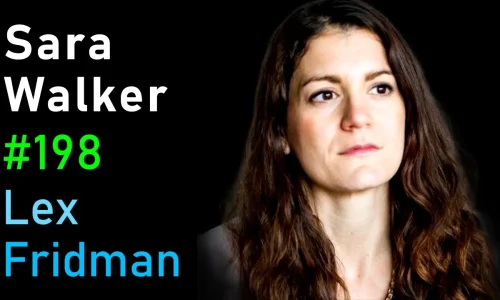See all Lex Fridman transcripts on Youtube

Sara Walker: The Origin of Life on Earth and Alien Worlds | Lex Fridman Podcast #198
1 hours 59 minutes 27 seconds
🇬🇧 English

Omnivision Solutions Ltd
- Getting Started
- Create Transcript
- Pricing
- FAQs
- Recent Transcriptions
- Roadmap